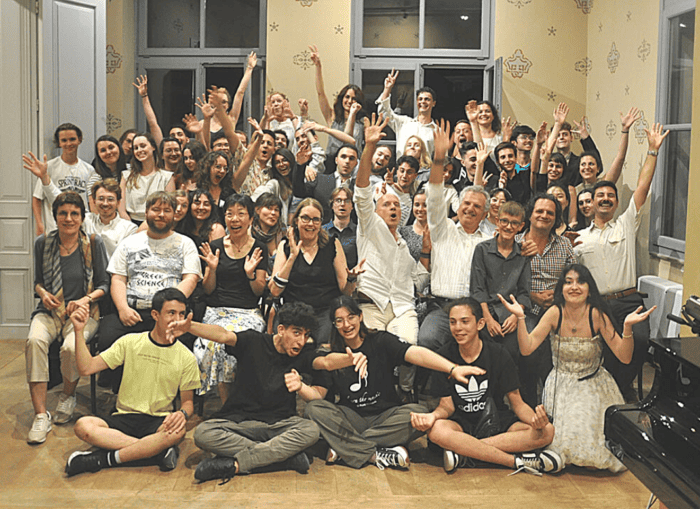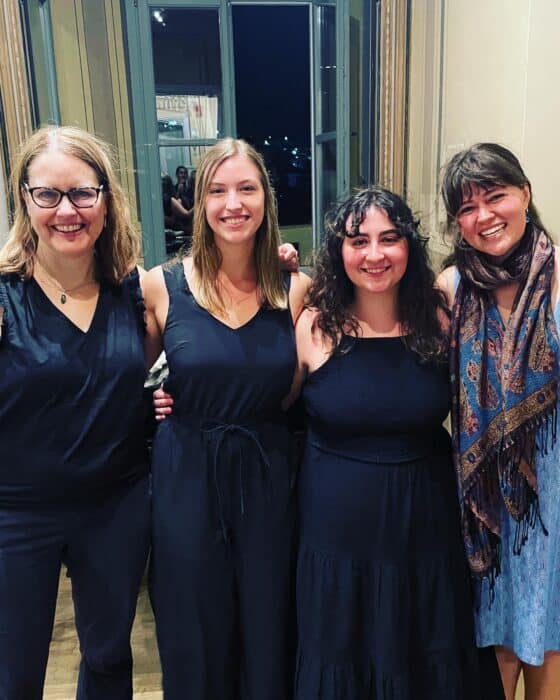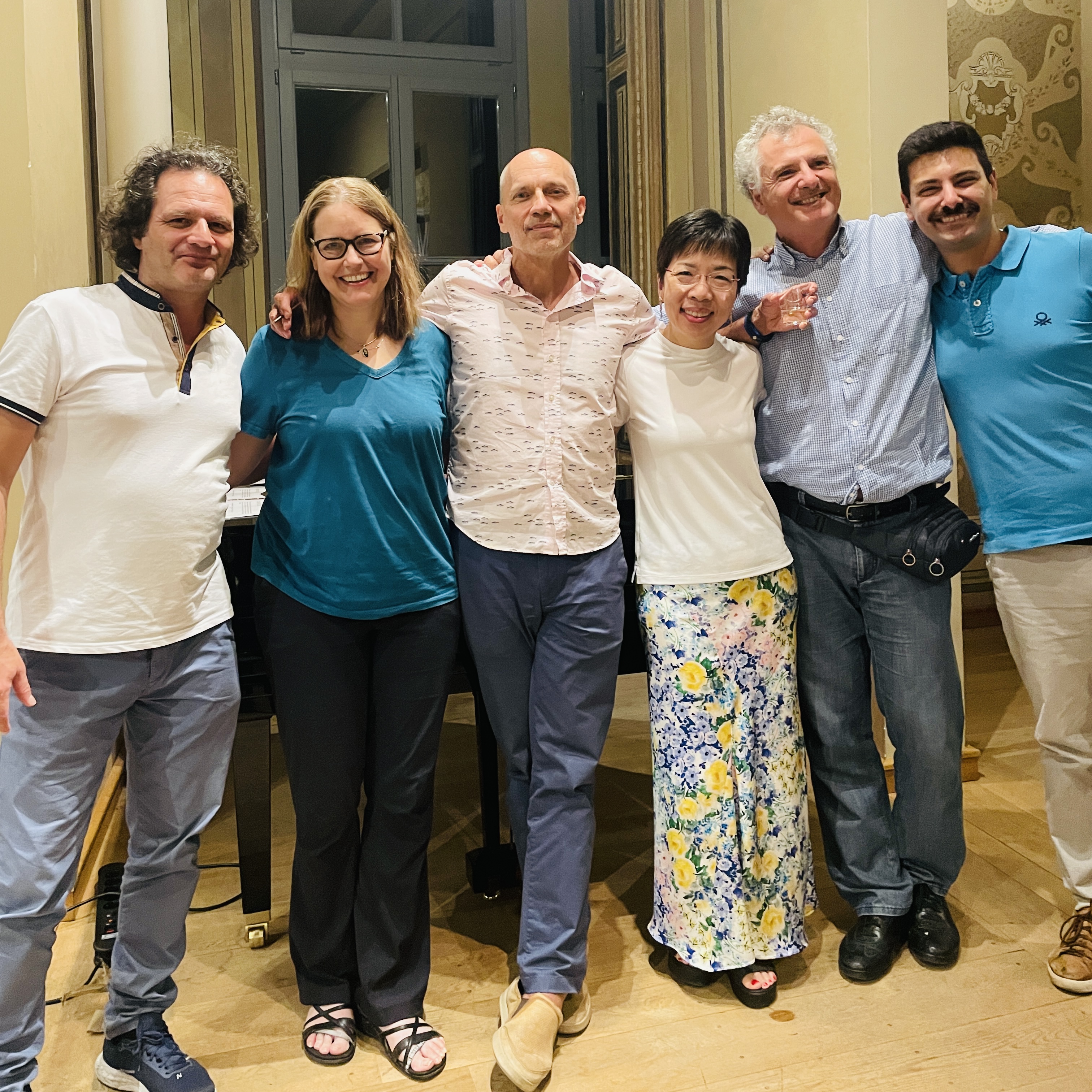
I recently had the wonderful opportunity to visit Xanthi, Greece, where I was invited to teach at the Summer Piano Institute. It was truly an honor to be a part of the faculty and to bring six of my own students along with me.
I uploaded a few photos from my time in Xanthi – click here to view this album in Google Photos.
This year marked the festival’s 10th anniversary. I first attended in 2017 when it was held in Corfu. However, two years ago, the festival was moved to Xanthi, a charming city located about three hours northwest of Thessaloniki.
I was initially drawn to this festival because one of its founders, Andreas Xenopoulos, is a former student of my good friend and colleague, Dr. Robert Satterlee from Bowling Green State University in Ohio.
This year, the festival had around 50 students and a faculty of six, including myself. The other esteemed faculty members were Lambis Vassiliadis, Andreas Xenopoulos, Paul Barnes, Grigorios Zamparas, and Solungga Liu.

About the Festival:
The festival consists of individual lessons, masterclasses, concerts, and outings.
Each student receives three 40-minute lessons, with three different faculty members. All lessons are open to the public and students may sit in on each others’ lessons. Every day two students are selected to perform for a masterclass, and each masterclass features a different faculty member.
Each evening of the festival there is a performance. The first three evenings consisted of piano faculty recitals, followed by a night dedicated to graduates from the Ionian Music Academy in Corfu. The last two nights were reserved for student recitals, both of which lasted around three hours. The final student recital was followed by a catered reception and a closing ceremony.
The performances took place in a beautiful and intimate salon at the Hadjidakis House, while the masterclasses and practice sessions were held at the Municipal Conservatory of Xanthi.
In the performance space, the pianist sat in the middle of the roo, with the audience on three sides. The days get quite hot in Xanthi, but in the evenings all of the windows are opened and the evening air blows down from the surrounding mountains. Ambient sounds from the surrounding streets and apartments (such as barking dogs, birdsong, and passing cars) are heard during the performances, but somehow, that didn’t seem to detract from the experience. Instead the extra sounds from the world outside had the effect of making the events feel even more intimate and special.
There were two student outings: one day, we all went for a hike at the Nestos River. The trail took us up the side of a mountain, which enabled us to enjoy views of the river valley and the surrounding mountains. Afterwards we went wading in the river and had lunch along the river bank.
The other group outing was to the beach, just 20 minutes away. Unfortunately, there was a thunderstorm that day that washed out the beach outing. There was also a tango class, which was followed by a group dinner at a restaurant that included singing Greek folk songs and dancing. I was very impressed that the Greek piano faculty, who had played recitals of Liszt and Beethoven, were able to also improvise Greek folk songs at the piano, and also play other instruments including the accordian, the spoons, the bouzouki (similar to a mandolin), and the darbuka (a type of Greek drum).
During the festival, students find accommodation at local hotels who offer quite inexpensive rates to festival participants. Also, lunch is provided and the students can explore the city and eat at many of the reasonably-priced restaurants available. My students were amazed at how low the prices were in comparison to the prices they are used to from the US.


Highlights
Here some of the memorable highlights from my time in Xanthi:
- Faculty Dinners: Each evening, we enjoyed an incredible dinner at a different restaurant. These dinners were not only attended by the faculty but also by board members associated with the organization hosting the festival. Typically, the dinners began after the recital, around 10:30 pm, and continued until well past midnight or even later. We didn’t order from a menu; instead, the waiters would bring plate after plate of delicious, wholesome food that we would pass around, family-style. These dinners were a wonderful way to get to know the other faculty and our Greek hosts.
- Cross-Cultural Exchange: The festival fostered a rich cross-cultural exchange, bringing together a significant number of Greek and American students. Additionally, students from South America, China, and Europe also participated. The Greek faculty and students warmly welcomed us and generously shared their culture with us. One evening, during a restaurant gathering, one member of the party surprised everyone by bringing his bouzouki and playing a few songs. The Greek members of the party spontaneously started singing along, and their impromptu music session continued until 3:00 in the morning.
- Introduction to Greek Culture: On another night, there was a grand dinner that included all the students at a different restaurant. The restaurant even had an upright piano available. After everyone had enjoyed their meal, musicians began playing, dancing, and singing traditional folk songs. The students had a fantastic time immersing themselves in Greek culture. I was amazed that the Greek students seemed to know all of the songs, although they sometimes had to look up the lyrics to some of the verses on their phones!
My time in Xanthi was truly rewarding and filled with unforgettable experiences. During this relatively short time, I was able to witness the incredible talent of both faculty and students and forge meaningful connections with fellow musicians. The festival succeeded not only in fostering musical growth but also in fostering cultural understanding and appreciation. I am grateful for the opportunity to have been a part of it, and I’m already looking forward to next year!

Who this festival is for:
The Summer Piano Institute consists mostly of students at the undergraduate through the advanced doctoral level, but it is also open to high school students and adult pianists who are not currently studying piano at a conservatory or university. This would also be a good festival for piano teachers and adult amateurs who are interested in a high-level musical experience.
The dates next year will be June 30-July 8, 2024. Interested in attending? Contact me!
Share this article
